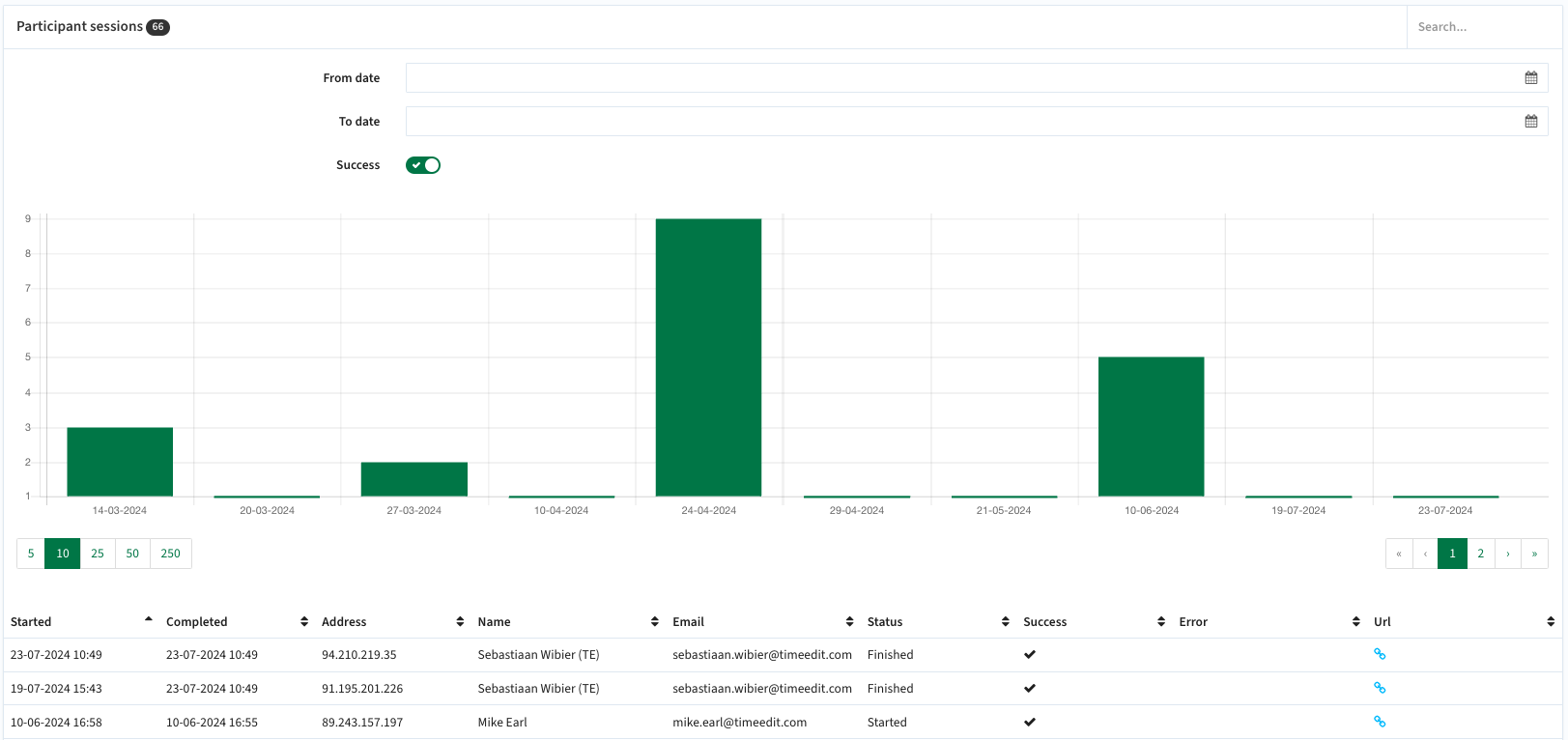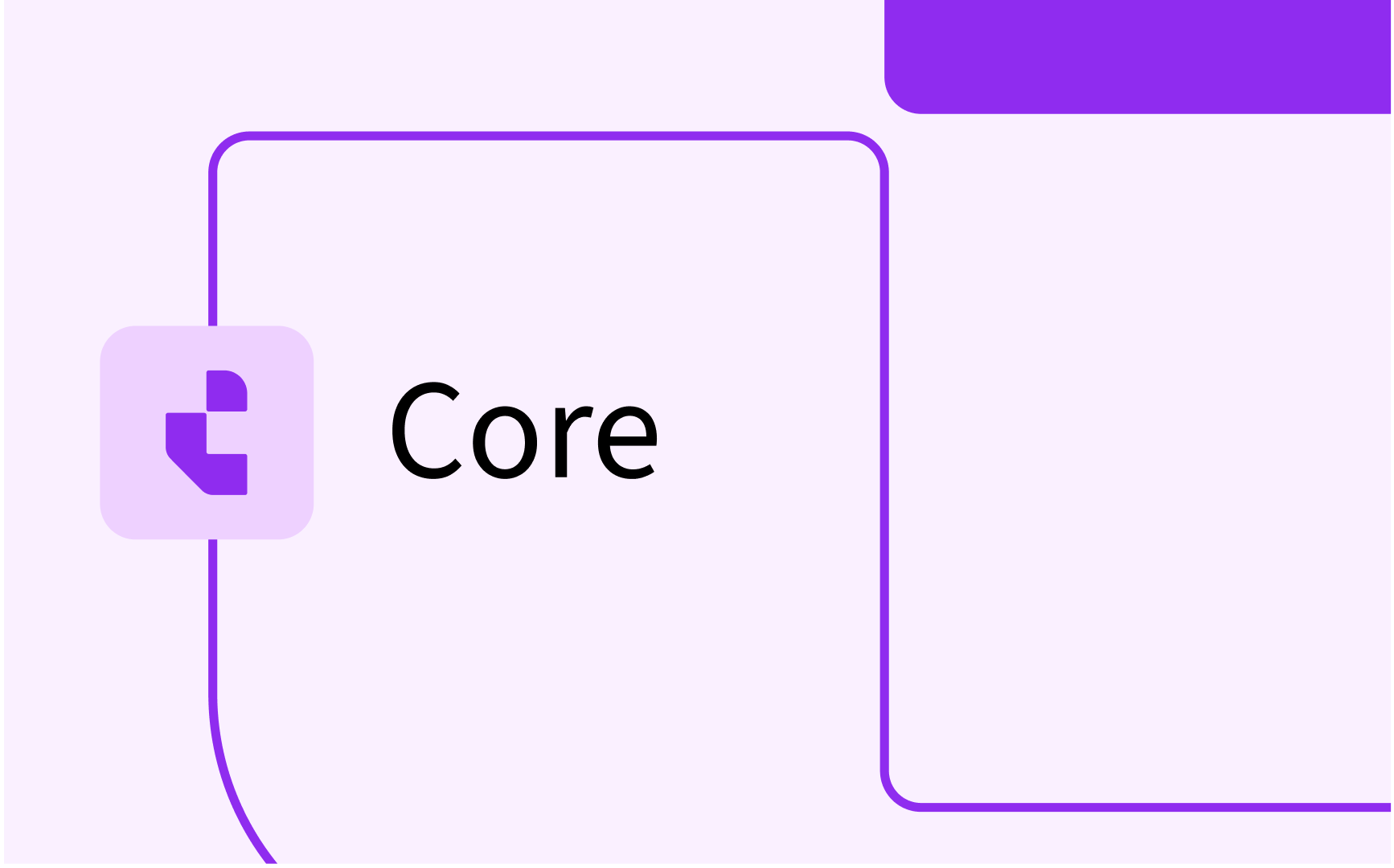Evaluation: insight in logging and other background information (System menu)

Scripts
Scripts are used to automate (cleanup) processes by scheduling them to be executed at regular intervals.
Go to the menu System > Scripts.
The script overview page provides different insight / functions:
- Overview of the scheduled processes
In the example 3 cleanup processes are automated. The first one is removal of logs on a daily basis after 7 days (retention=7) - Queue
In case processes are running the Queue will show the running processes - Execute
Option to Add (Schedule button) a new automated process OR immediately execute a process (Execute button)
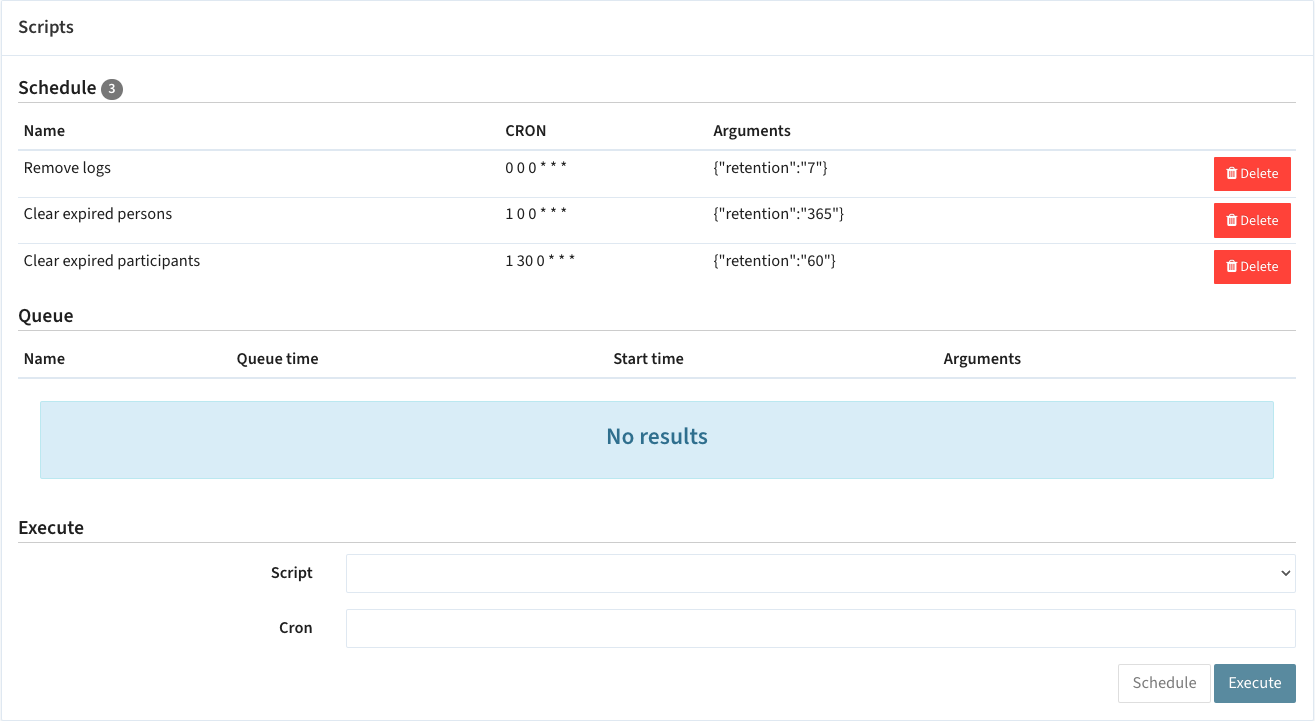
The Scripts that are currently available are:
- Clear expired participants: anonymise expired evaluation participants after the provided retention period, e.g. 60 days
- Clear expired persons: anonymise expired persons after the provided retention period, e.g. 365 days
- Clear the cache: clear the internal cache of the system, mostly used as an immediately executed function.
- Remove expired password change requests: remove password change requests, which is only relevant in the rare case Evaluation is used without a SSO integration.
- Remove logs: remove the log information after the provided retention period, e.g. 7 days.
- Remove old exports: remove old exports after the provided retention period
- Send test mail: function that allows sending an email to the configured used, allowing to test the setup of the mail server connectivity.
- Synchronize labels: function allowing to synchronize the labels
The cron is a standard Unix based configuration method for scheduling processes. A cron is basically existing of 6 configuration options:
- hour
- minute
- second
- day in month
- month
- day in week
The last config in the example: 1 30 0 * * * will run at 01:30:00 on every daty.
Logs
Different logging options are supported via the System menu that provide insight in the processes and it executed tasks in the background.
Loggings supported are:
- Request logs: reports on the executed API requests by external provisioning system
- Access logs: reports on the API related requests executed by users, e.g. generate a background report or pdf (api/reports, api/pdf)
- Sync logs: report on executed scripts and API synchronisation requests (evaluations, participants, ...) provided by external systems.
- Mail logs: report on the mails sent, including status and option to view the contents of the mail sent
Request log
The request logs offers the option to report on user provisioning integration, where the report can be filtered on:
- Specific date: select a date, default the last results are shown
- Success: filter on status (success, failed, all responses)
- JSON: search the message body for specific message.
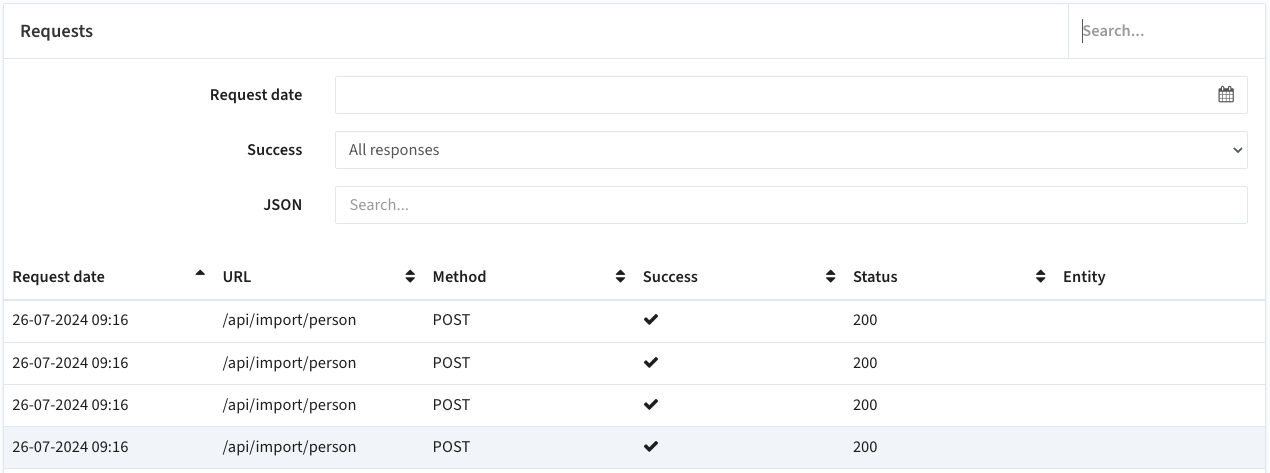
Click on the reported line will show the message details.
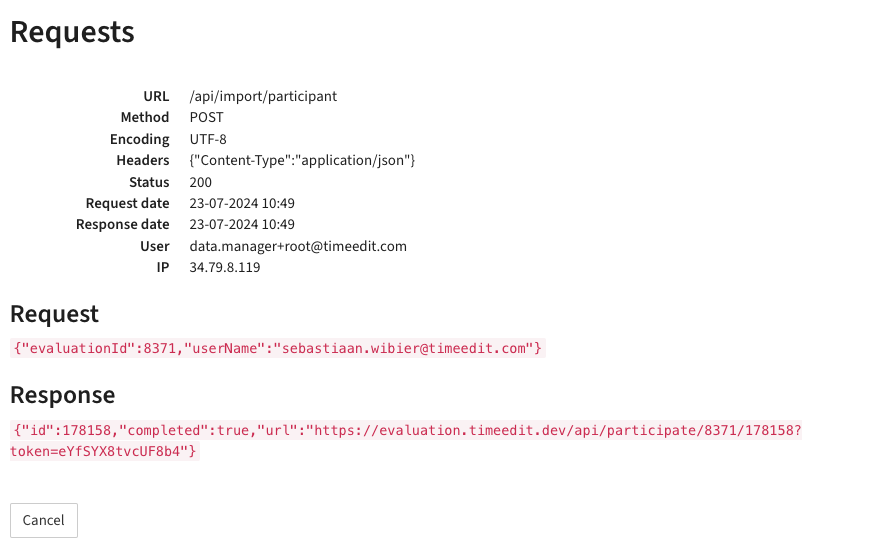
All other log options are designed and build in a similar way, allowing filtering on the results and click-through on the reported line to view the underlying message details.
Exports
The Export report offers the option to report on executed report generation requests, allowing filtering on status:
- No selection: show all requests, regardless of status
- Downloading: show all requests that are in the status downloading
- Failed: show all requests that have failed
- Finished: show all requests that have successfully finished
- Queued: show all requests that are in the queue waiting to be generated
- Started: show all requests that have started and are generated at this moment
- Starting: show all requests that are leaving the queue to get started.
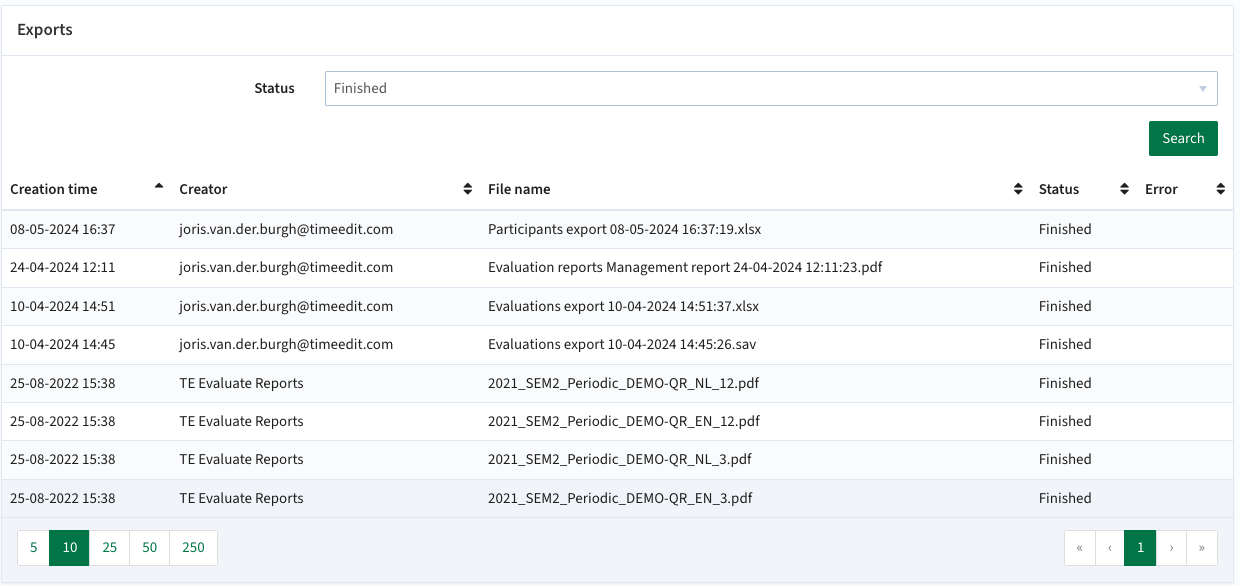
Scheduled workflows
The scheduled workflows provide insight in the executed automated (configured) workflow actions.
Open the System -> Schedule workflows menu to open the report.
The report allows to filter on:
- Date: select a specific date to view the automatically executed workflow tasks
- Future: show the scheduled workflow tasks in the near future
The example below shows the automatic executed tasks based on the configuration in the respective workflows. In this case a notification to the students the evaluation results have been published and some reminder notifications to students that the end date to respond is getting closer.

Participant sessions
The participant session is available via the System -> Participant sessions menu and provides an overview of the participant (respondent) sessions grouped per month.
The report allows to filter on:
- From date: select a specific start date for the report
- To date: define an end date to restrict the report
- Success: only show the successful sessions (finished the evaluation)
Underneath the graphical overview a full list of all participant sessions executed during the selected period are shown.
